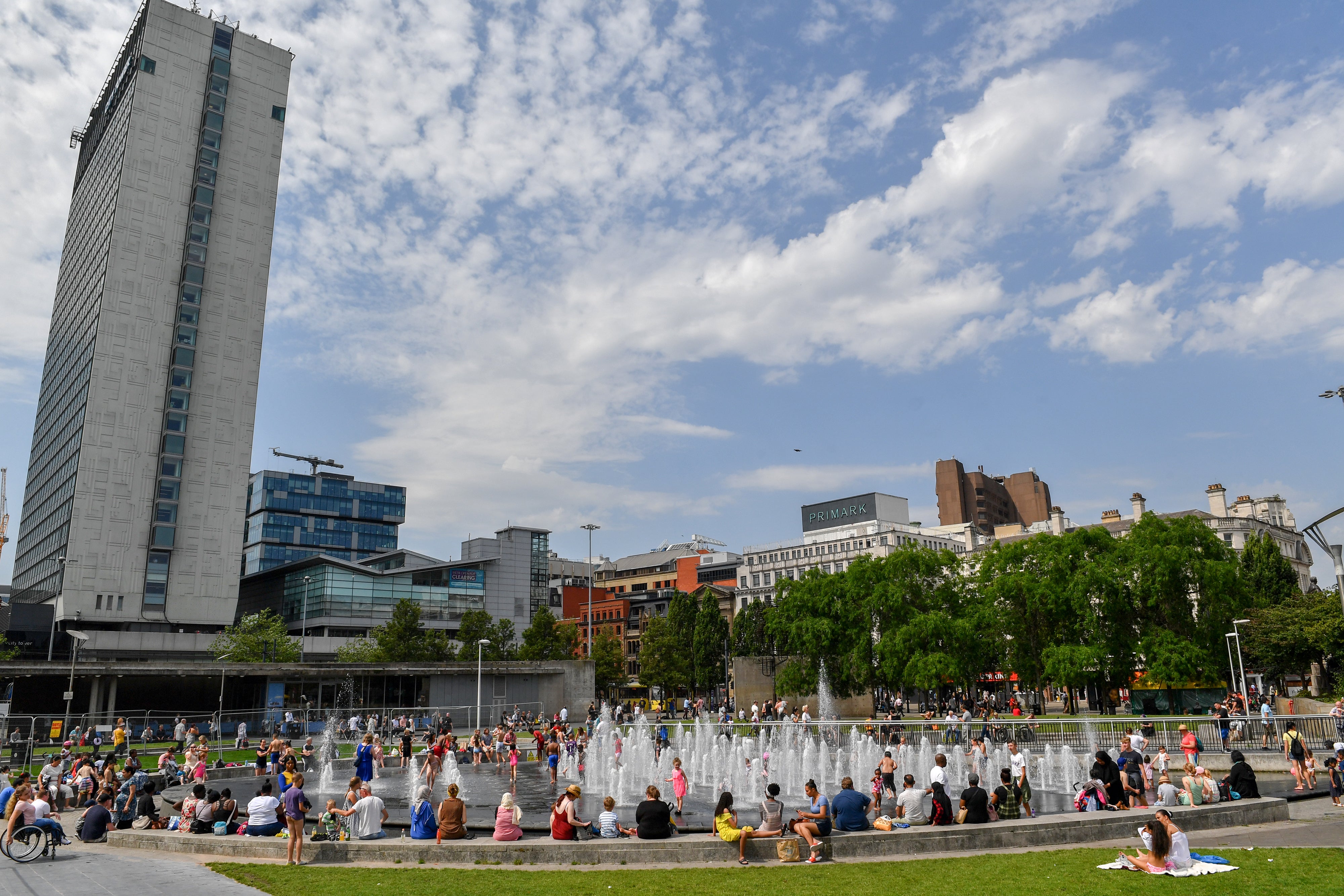Levelling up needs billions more than Government offering, says think tank
The Resolution Foundation said closing the gap between London and the UK’s cities needed far more investment than the Government was contemplating.

Your support helps us to tell the story
From reproductive rights to climate change to Big Tech, The Independent is on the ground when the story is developing. Whether it's investigating the financials of Elon Musk's pro-Trump PAC or producing our latest documentary, 'The A Word', which shines a light on the American women fighting for reproductive rights, we know how important it is to parse out the facts from the messaging.
At such a critical moment in US history, we need reporters on the ground. Your donation allows us to keep sending journalists to speak to both sides of the story.
The Independent is trusted by Americans across the entire political spectrum. And unlike many other quality news outlets, we choose not to lock Americans out of our reporting and analysis with paywalls. We believe quality journalism should be available to everyone, paid for by those who can afford it.
Your support makes all the difference.Levelling up the UK’s cities will require investment that goes “far beyond anything currently being contemplated” by the Government, a think tank has said.
A report published on Monday by the Resolution Foundation found that differences in income were both “significant” and “persistent”, with only traditionally poorer areas of inner London such as Hackney and Newham significantly improving their position over the last 25 years.
At its most extreme, the report found that income per person in the richest part of the country, Kensington and Chelsea, was 350% higher than income per person in Nottingham, the poorest part.
Even at less extreme levels, the difference remains stark. Per capita income in Oxford, in the top 25% of local authority areas, is still 20% higher than that in Torbay, in the bottom 25% of areas.
Addressing this challenge will require Britain to completely turn around its poor record on investment, to take hard-headed decisions on where this investment should be prioritised, and for cities to embrace growth
These gaps are reinforced by differences in income from investments. In 2019, residents of Camden received an average of £9,135 from investments, while those in Knowsley – one of the most deprived boroughs in the country – received an average of just £806.
Lindsay Judge, research director at the Resolution Foundation, said: “Britain is beset by huge economic gaps between different parts of the country, and has been for many decades. While progress has been made in reducing employment gaps, this been offset by a surge in investment income among better-off families in London and the South East.
“People care about these gaps and want them closed, as does the Government via its ‘levelling up’ strategy. The key to closing these gaps is to boost the productivity of our major cities outside London, which will also lead to stronger growth overall.”
But closing those productivity gaps will be challenging and expensive.
In another report due to be released on Thursday, the Resolution Foundation will argue that current Government policies do not go far enough.
Taking Manchester as an example, where productivity is 30% lower than in London, the think tank said closing that gap would require tens of billions of pounds of investment, more graduates working in the city and an extra 300,000 workers moving to Greater Manchester.
Henry Overman, professor of economic geography at the LSE, said: “Those looking for Britain’s productivity problems can find them in our under-performing major cities.
“Addressing this challenge will require Britain to completely turn around its poor record on investment, to take hard-headed decisions on where this investment should be prioritised, and for cities to embrace growth.”
A Government spokesperson said: “We welcome this report and its findings, which highlight the vital importance and urgency of levelling up all parts of the UK.
“Out Levelling Up and Regeneration Bill will enshrine in law our commitment to closing the gap in pay and productivity across regions.
“By investing in the areas that need it most, improving schools, supporting regeneration and generating higher paid jobs we will improve the lives of the poorest in areas across the UK.”